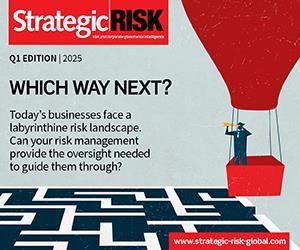Airmic, RIMS and RepTrak have released a joint report on future of reputational risk, following interviews with leading risk leaders in the US and Europe
RIMS, Airmic and the RepTrak Company have jointly published a report exploring best practices and challenges for effectively managing reputational risk.
The report states that risk professionals today are at a crossroads, where they can follow one of two paths: the first, where they have the responsibility but no influence and control; or the second, where they can contribute value to the organization by leading implementation of a structured, data-driven and systematic approach to reputational risk that draws the whole organisation together around a common framework.
Julia Graham, deputy CEO, Technical Director, Airmic, said: “We hope this guide to reputational risk will encourage and help more risk professionals to travel the second path. We are delighted to have worked with RIMS and The RepTrak Company on this paper, which puts forward a guide for risk professionals to work strategically with others within their organisations, to measure and tackle reputational risks today.”
Hoe-Yeong Loke, research manager, Airmic, added: “As organisations manage issues arising from the Covid-19 pandemic, they face increasingly interconnected and complex risks. Reputational risk takes on even greater importance. Previous studies from Airmic and RIMS suggest that the risk community continues to struggle with reputational risk, and with reputation as an intangible asset. There is a gap between what senior executives and risk professionals know is important to manage and the work that is being done.”
Carol Fox, VP strategic initiatives, RIMS, continued: “During our research journey with Airmic and RepTrak, we learned from our collective focus group participants that unlocking reputational value is as important as closing reputational gaps. Greater collaboration between risk and corporate communications professionals in using data to detect reputational risk early on helps unlock reputational value as well as produce an agile and decisive crisis management response.”
Kasper Ulf Nielsen, RepTrak chief strategy officer, co-founder, noted: “Most organisations deal with reputational risk at the operational level only. This is not out of choice, but because they lack the data and framework to bring the operational and the strategic together. Frameworks such as the RepTrak® reputational risk framework with its use of the seven drivers of reputation, provides a basis for measurement, monitoring and collaboration between different functions within an organisation.”
Traditionally, risk is dealt with by risk experts, while reputation tends to be managed by the corporate affairs or corporate communications teams. When those two teams work in silos risks to reputation can develop and remain undetected until it is too late, and an organisation can find itself as unplanned headline news.
The report coincides with Airmic Fest. It’s theme “Working together in a time of accelerated change” – echoes the message that collaboration is crucial to close the gaps on reputational risk management. The conversation will continue at the RIMS ERM Virtual Conference 2020, held on 4-5 November 2020.
Airmic, The Risk and Insurance Management Society (RIMS) and the RepTrak Company commissioned interviews with over 40 leading risk professionals in Europe and the US to discuss how reputational risk management can be improved.




















No comments yet